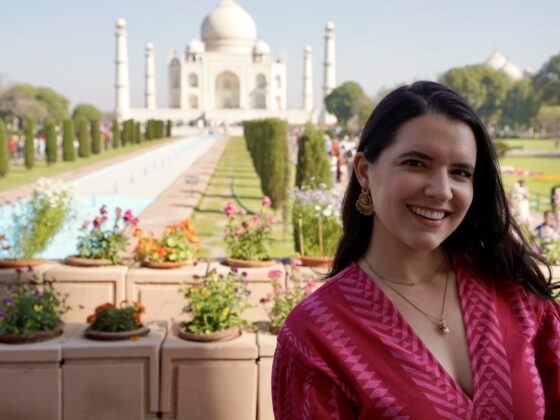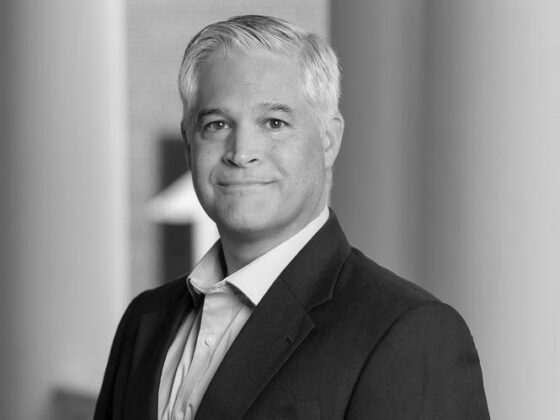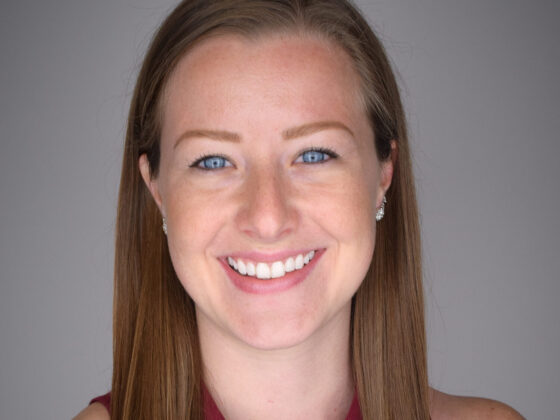[The following interview has been condensed for this blog series by Meredith Barnes.]
In June 2024, Shane Dikolli, Bank of America Professor of Business Administration at Darden, led a cohort of Class of 2025 Executive MBA students on a Global Residency to Australia, including a visit to his hometown of Perth. In this interview with CGI, Dikolli reflects on the distinctive experiences from the course, offering insights into Australian business practices, leadership qualities, and cultural nuances. He also shares his perspective on how students can optimize their learning and engagement during global residencies, drawing on his personal and professional experiences in Australia.
1) Tell us about yourself, your background at Darden, and your experience with the Center for Global Initiatives.
I’m on faculty at Darden in the Accounting area and have been with the school for six years. I’m Australian-born and have led six Global Residency and Darden Worldwide Courses in Australia since 2020, with 155 Darden MBA students attending in total. This year was the first time ever that a Darden Global Residency visited the furthest place on earth from Charlottesville — Perth, Australia, which happens to be my hometown.
2) What was the most memorable experience that you had on this year’s Global Residency in Australia?
If I had to pick one day that stood out, it was the first day of programming in Perth. I designed the entire day of programming. We started at Sandalford Wines in the Swan Valley, which is one of two prestigious wine regions in the world within 20 minutes of a major international airport (the other is near Vienna, Austria). Sandalford CEO Grant Brinklow articulated in great detail the vision, mission and strategic objectives of the organization, how he thinks about challenges going forward, and plans for innovation.
After an extensive Q&A with Grant, staff led us on an impressive tour of the winery’s facilities. We were then treated to a wine tasting and a spectacular three-course lunch. We then headed to Caversham Wildlife Park where we were led by a professional guide. Every course participant had an opportunity to have separate one-on-one photos with a kangaroo, a wombat and a koala.
Next, we headed to my home in Mount Hawthorn (an inner-city suburb of Perth), where we enjoyed a “Dikolli Happy Hour” with my wife and Australian family. We finished the day a short distance away at the Cooking Professor, where we learned to cook with native Australian ingredients and enjoy a first-class dining experience cooked by the group. The quality of the day’s experience was way beyond my lofty expectations and was something I will never forget.

3) What companies, organizations, or individuals did your group visit?
We visited over 19 diverse corporate and cultural venues including Qantas Airways, the nonprofit Clontarf Foundation, Kings Park (a unique inner-city park and botanical garden) and Young Henrys, a brewery that processes byproduct into CO2-rich algae that can be used to supplement livestock feed.
4) How would you characterize Australian business practices?
Australian business practices tend to have a strong stakeholder focus that empathetically considers others in the value chain. The businesses we visited clearly took their responsibility for looking out for shareholders, employees, customers, suppliers, government entities, potential investors and traditional landowners seriously.
A striking contrast to the U.S. we consistently noticed, for example, is how Australian businesses are ready to cover for employees who decide to take paid time off, often for a whole month or more at a time. This is not to say Australian employees don’t work hard. Rather, employees and their employers are committed to ensuring that employees can enjoy work outside of life. Anyone we met who knew both U.S. and Australian business practices often expressed that Australians work to live, rather than live to work.
5) What leadership qualities did you observe in Australian business executives?
Australian business executives often display the following leadership qualities: humility, empathy, passion, resilience, integrity, trustworthiness, candor and strong communication skills. I believe we have seen these qualities in virtually every single business executive we have met on the global courses. I also believe many of the qualities we have observed are heavily influenced by Australian cultural values — “mateship” in particular.
6) Can you share any unexpected insights or lessons learned from the Australian business leaders you interacted with?
One of the most powerful lessons I learned is: “80% of the things that employees worry about are likely not worth worrying about.” Having this mindset helps employees move forward constructively rather than dwell on matters that ultimately do not substantively affect the performance of the organization nor the performance of the employee. Another important lesson I learned during interactions with business leaders was a life lesson: “Life is too short to not be doing things that bring you joy.” Thankfully, seeing Australia all over again through the eyes of 155 American MBA students from Darden brings me joy in ways I could never have imagined when I first started planning these global courses.
7) Being Australian, how did you bring a local perspective to student learning?
I grew up in Australia and was fortunate to have interactions extending from farmyards to coastal towns to football clubs to corporate boardrooms. I still travel there at least annually and have kept up with pop culture and trends in Australia. I find that my experience in Australia can help students narrow down the wealth of opportunities available to them when they visit a country like Australia. I’ll often have students say, “I don’t know whether I should do option A or option B during times outside of Darden programming.” Because I know the students and I typically know the options, it’s easy for me to suggest which option I think would be the most meaningful to them.
8) What advice do you have for students on how to make the most of their time on Global Residencies and Darden Worldwide Courses?
Three simple pieces of advice:
-
- Be bold. In Australia, I would say on average the locals are interested in Americans and generally are very happy to have a conversation with an American, especially if they think they can be of assistance. I encourage students to take advantage of this fact and, for example, go into a coffee shop and ask questions of a local patron or a barista.
- Be curious. It’s ok to ask questions not only of locals that the students don’t know but also of me and of any of our business leaders. I can say unequivocally that any speaker we have ever had would be likely to answer almost any question with candor. Again, I encourage students to take advantage of this opportunity and ask questions to learn.
- Choose quality over quantity. Because there are so many wonderful things to do, see and learn in Australia, the temptation is to try to do as many of those things as possible. However, I encourage students to choose high-quality experiences over high quantities of experiences. Those high-quality experiences are much more memorable and are easier to explain to others. They also tend to be richer in learning opportunities.






